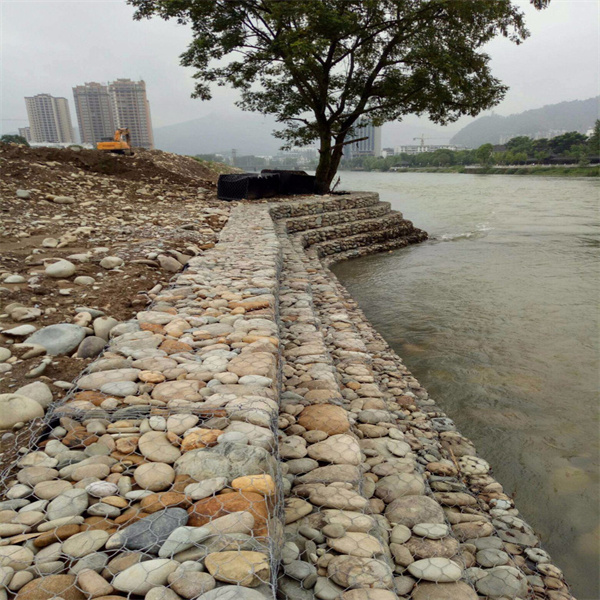Sep . 26, 2024 05:51 Back to list
rocks for gabion walls suppliers
Rocks for Gabion Walls Suppliers and Considerations
Gabion walls have become increasingly popular in civil engineering and landscaping projects due to their versatility, aesthetic appeal, and functional benefits. These structures, made of wire mesh cages filled with rocks, serve various purposes ranging from erosion control to decorative landscaping features. Choosing the right type of rock for your gabion walls is crucial for ensuring their stability and longevity. This article explores the factors to consider when selecting rocks for gabion walls and provides insights into finding reliable suppliers.
Understanding Gabion Walls
Gabion walls are essentially rectangular or cylindrical structures made of stacked wire mesh baskets filled with stones or other materials. They are primarily used for erosion control, retaining walls, and flood protection. The design allows for natural drainage, making them effective in preventing soil erosion along riverbanks and slopes. Additionally, gabion walls can be used aesthetically in gardens or parks, adding a natural element to the landscape.
Choosing the Right Rocks
When selecting rocks for gabion walls, several factors come into play
1. Material Type The most common types of rocks include granite, limestone, river rocks, and basalt. Each type has different aesthetic qualities, weight, and durability. For instance, granite is extremely durable and resistant to weathering, making it a popular choice for structural integrity. River rocks are smoother and can create a more natural look but may not be as sturdy.
2. Size and Shape The size of the rocks impacts the structural stability of the gabion wall. Generally, rocks should be within the range of 4 to 8 inches in diameter. However, larger rocks can provide better stability. Furthermore, the shape of the stones can influence how well they fit within the gabion basket and their overall appearance. Angular rocks interlock better than round ones, providing greater stability.
3. Weight Heavier rocks are often preferable for gabion walls, as they provide better strength and resistance to shifting under pressure. The weight of the rocks should align with the intended function of the wall, especially for retaining structures.
rocks for gabion walls suppliers

4. Aesthetic Considerations Rocks come in various colors, textures, and patterns. For landscaping purposes, choosing visually appealing stones can enhance the overall design. It's essential to select rocks that complement the surrounding environment and meet the project’s aesthetic goals.
Finding Reliable Suppliers
Once the right type of rock is identified, finding a reliable supplier is the next step
. Here are some tips on how to approach this1. Local Quarries Many local quarries provide a variety of stones suitable for gabion walls. Visiting these quarries allows you to see the stones firsthand and assess their quality. Additionally, local suppliers may offer more competitive pricing and reduce transportation costs.
2. Building Material Suppliers Many building supply stores stock materials for landscaping projects, including rocks for gabion walls. These suppliers often have a range of options, from natural stone to crushed rock, giving you a wide selection.
3. Online Marketplaces The internet has made sourcing materials easier than ever. Websites such as HomeAdvisor, Angie’s List, or even Amazon often feature suppliers that sell rocks specifically for gabion walls. Be sure to check reviews and ratings to ensure the supplier’s reliability.
4. Specialized Landscaping Companies Many landscaping companies provide materials for gabion walls as part of their services. They can offer expert advice on the best types of rocks for your project and may also handle the installation, ensuring everything is done correctly.
Conclusion
Gabion walls are highly beneficial structures that can serve multiple purposes in landscaping and civil engineering. Understanding the critical factors in selecting rocks and working with reliable suppliers is essential for the success of your project. By carefully considering your options and sourcing quality materials, you can create a stunning and durable gabion wall that meets your needs for both functionality and aesthetics.
-
The Role of Galvanized Gabion Mesh in Riverbank Protection
NewsJun.26,2025
-
The Role of Gabion Basket Raised Bed in Sustainable Gardening
NewsJun.26,2025
-
Quality Assurance of Wire Mesh Gabion Baskets
NewsJun.26,2025
-
Installation Guide for Welded Gabion Box
NewsJun.26,2025
-
How to Choose the Right Gabion Box
NewsJun.26,2025
-
Different Types of Gabion Wire Mesh
NewsJun.26,2025
-
Why PVC Coated Gabion Mattress Is the Best Solution for Long-Term Erosion Control
NewsMay.23,2025






